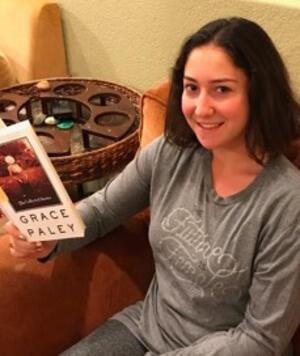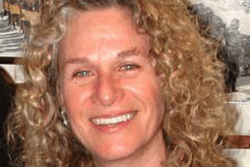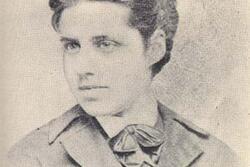Paley’s Power on the Daily
Last year, my AP English class read the short prose poem “Mother” by Grace Paley. What struck me the most was its mundane nature. This is a characteristic of nearly all of Paley’s work; she wrote in detail about the daily lives of women—a topic that, when she was writing in the 1940’s, was viewed as tangential to the “real” work of male authors writing bestsellers like The Catcher in the Rye (J.D. Salinger) or 1984 (George Orwell). While other female authors had found success in the writing industry, they were forced to write with predominantly male characters, or were often relegated to “lesser” genres, like children’s books.
Writing at a time when the highest compliment a critic would give a female author was that she “wrote like a man,” Paley’s bold writing and outspoken activism had profound implications on the societal perception of women. She was a pioneer in forcing the industry to acknowledge the merits of her stories—stories that centered on the daily lives of women. I strongly believe that if women’s writing is valued, then that translates to how women are viewed in real life.
The combination of accessible, everyday content paired with stylistic mastery is what put Paley on the map, and the enduring relevance of her message keeps her there. As a young writer myself, Paley taught me to embrace the everyday in my own work, and to articulate the significant lessons that life’s simplest experiences teach us.
I fiercely believe in the power of the written word. Paley is a testament to how careful crafts(wo)manship, and highlighting underrepresented voices and experiences, can bring about real change. I therefore try in my own writing (I especially love poetry) to meaningfully reflect on the world in which I find myself living. A recent example is the flurry of poems I wrote following the election of Donald Trump. It was a time of great intellectual and emotional distress for me, and I tried to channel that energy in a productive manner. I drew inspiration from Emma Lazarus’ famous “The New Colossus,” the poem inscribed at the base of the statue of liberty, to write “Here Lies.” My poem describes a “fallen colossus,” irrevocably cracked and degraded by fear and isolation.
But Paley didn’t only limit herself to her daily life. She was an activist in many issues, including nuclear proliferation, American warmongering, and the occupation of the West Bank. Paley brought a sense of urgency to the issues that were affecting people’s lives on a daily basis—the very lives she was writing about. Her beliefs influenced her interaction with the world, which influenced her writing, which in turn influenced her beliefs. Her life experience existed in a dynamic yet cyclical relationship with what ended up on her page—a relationship I hope to emulate through my own activism and writing.
Paley is a testament to the power and importance of writing about women’s daily lives. She didn’t disregard the mundane for fear of it being too simple. In its own way, her work is radical; by focusing on the minutiae of women’s everyday lives, she helped them achieve a greater presence not only in literature, but in society as a whole. She used her writing as its own form of activism—to enact a meaningful change in the perception of women in the social consciousness.
This piece was written as part of JWA’s Rising Voices Fellowship.








Awesome job! Excellent word choice.